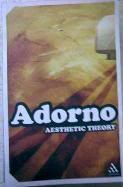Let's up the postmodern in this blog a little.
Since many people associate postmodernism with randomness, here's a random quote for ya.
To regard the imagination as metaphysics is to think of it as part of life, and to think of it as part of life is to realize the extent of artifice. We live in the mind.
Wallace Stevens
Actually it isn't random in the sense that I believe in this and that's the reason I chose it.
Mr. Stevens was a modernist. How many people in the end have moved on from modernism? How many even know about postmodernism on a global level? Can you even employ the postmodern as an era? Are eras ever truly global?
Maybe the irony of postmodernity is that we're living in postpostmodernity now. Nobody outside the academia noticed.
I've been really exhausted lately. I can't get no sleep. I've tried running longer and faster and more often to help me sleep at night, but all it does is kill my leg muscles.
I blame my lack of sleep for my recent penchant for reading whatever seems to confuse the hell out of me.
Being groggy after a bad night's sleep blurs the distinction between reality and thoughts even more than usual. Somehow though, it helps me focus better on reading.
I rediscovered some interesting books I'd forgotten I owned. One of my old favourites is Theodor Adorno's Aesthetic Theory.
It's a somewhat ancient book as is its author, but my 2004 reprint volume by Continuum is simply beautiful:

I've found a couple of interesting points there that just might be useful in nailing down the aesthetics of urban exploration. Even though Adorno apparently tries to defend modernism. He didn't know of anything better.
This book is surprisingly readable, unlike some of his other works. Like the one on englightenment reverting to myth. The gist of the idea is easy enough to fathom out, but boy can he write ridiculously long sentences.
I know his writing style is supposedly part of his overarching argument, but I can't help but wonder if he couldn't have written with the same effect a little more lucidly.
Aesthetic theory is another matter. It's mostly transcriptions of his speech, written down by his wife. It's a posthumous work, so his chaoslike writing style is in a way still present in the disorderly disposition of the chapters.
Beyond that however, it's almost a pleasure to read. The font is so beautiful too. And don't you just love to say "Adorno"? I think it's a really cool name.
No comments:
Post a Comment